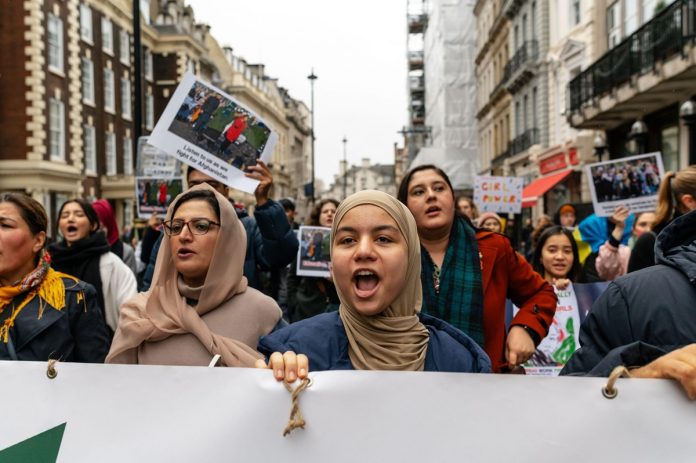The plight of Afghan women under the draconian rule of the Taliban has long been a harrowing tale of oppression and injustice. In the face of systemic discrimination and blatant denial of basic rights, the Muslim world stands at a critical juncture, facing a moral imperative to champion the cause of Afghan women’s education.
Despite decades of advocacy and diplomatic efforts to encourage the Taliban towards moderation and inclusivity, the reality on the ground remains grim. Women continue to be marginalized, deprived of education and employment opportunities, and relegated to the status of second-class citizens in their own country.
The Taliban’s regressive policies, particularly their prohibition on girls’ education beyond the age of 11, are not rooted in Islamic law but rather reflect entrenched cultural biases. It is essential to recognize this distinction, as it underscores the urgent need for intervention to counter the group’s distortion of Islamic teachings for the perpetuation of gender apartheid.
Traditional diplomatic approaches have yielded limited results, with the Taliban displaying a steadfast refusal to compromise on issues pertaining to women’s rights. While Western powers remain committed to principles of inclusivity and human rights, the group’s grip on power remains unyielding, necessitating a reevaluation of engagement strategies.
In this context, the Muslim world emerges as a crucial actor in advocating for change within the Taliban regime. With deep cultural and religious ties to Afghanistan, Islamic nations possess a unique opportunity to influence the Taliban and facilitate meaningful progress on women’s education.
One effective strategy is the provision of scholarships for Afghan women to study in Islamic countries, thereby empowering them with access to education and nurturing a new generation of leaders capable of effecting positive change within their communities. By leveraging cultural ties and offering tangible support, Islamic countries can initiate constructive dialogue with the Taliban and promote female education as an integral component of Islamic values.
Despite challenges and setbacks, efforts by Muslim-majority countries and organizations to persuade the Taliban to moderate their policies on women’s rights have been ongoing since the withdrawal of US forces from Afghanistan. However, the road to meaningful reform remains fraught with obstacles, requiring sustained engagement and collaboration.
The Muslim world’s leadership in efforts to promote Afghan women’s education is not only a moral imperative but also a strategic necessity for fostering sustainable change in Afghanistan. By empowering women with access to education and opportunities abroad, Islamic countries can cultivate a new generation of educated and empowered leaders who are equipped to challenge oppressive norms and advocate for gender equality upon their return home.
The Muslim world bears a moral obligation to support Afghan women in their pursuit of education and empowerment. By prioritizing initiatives that promote female education and leveraging cultural ties to engage with the Taliban, Islamic countries can play a pivotal role in fostering sustainable change and securing a brighter future for Afghan women.




